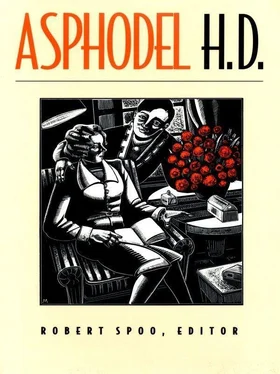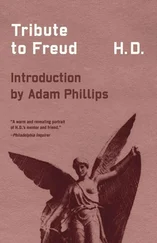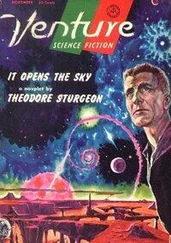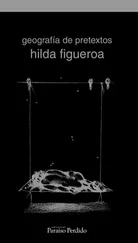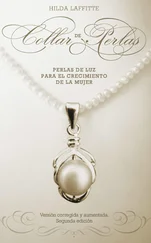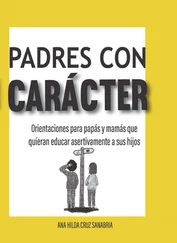Light filtered through fog and the effect was as of some vision, some dream room, built up of dream stuff from some other planet. It was not the world this. Nereids from the Nereid portal broke the sifted yellow light with triangulated drapery. An arm lifted in that curious mellow flow of curious colour. An arm lifted and seemed about to part the gauze fog that had so suddenly descended. Voices from the other room, feet shuffling. “The curve of the Parthenon steps is perhaps the most remarkable comment on the Attic genius. You will notice from this angle that the small model in the right hand case gives in its minute way the exact proportion. Bend lower from the side and you will see the step curve. Yet from the distance they appear straight.” Comment on the genius of antiquity. Darrington saw this. “Funny all this, these people. Nereids and you, Astraea. Nothing has ever seemed real before, the governor, rows at home, rowing me now, even now trying to make me respectable.” “Respectable. Aren’t you?” “Not as he wants, they want. Old friends, Percy Lubbock, offered to see me through the law. Couldn’t stand it. They think now I’m a lost soul and I never see them except when I’m really hungry.” “Are you ever, really—” But how go on with it? If he were hungry ever she shouldn’t take the violets. The violets breathed fresh up into her face as she felt her throat lift toward those Nereids for some solution. Should or should I not then take his violets? Darrington had laid violets at her shrine in that same spirit as in old days people brought milk and rose-leaves to those Nereids. There was something else too that would express this. Where, where was it? Somewhere. Was it a Persian manuscript? “If you have two loaves, sell one and buy narcissus.”
She seemed to hold the soul of Jerrold Darrington in her hands. He was right when he said he wanted a beautiful mother. He was her child.
She was telling him things (still later one afternoon still later in winter) that she would never have thought she could tell anybody, things it appeared she had not even been aware of. “Clara got so on one’s nerves you see. She wanted to be autocratic and whenever I made what I thought was a pretty gesture she said I was ill-bred.” “Actually said?” “Thought. It was in the air. She was so superior to everyone. Not like old Eugenia.” “Eugenia must be rather an old darling.” “No. She was cruel.” “All mothers are. You mustn’t take it hard. All parents are monsters of cruelty. They would rather one died in their clutches than that one winged out of it, loose.” “Died?” “Yes. Much rather. They haven’t the decency of hawks, not the respectability of tigers. Tigers, hawks let their young loose to grow. Our parents feed on us like vampires on raw flesh.” “Isn’t that — rather — rather—” “Strong? No not half strong enough, Astraea. You’re not free of the thing really. You think you are. They’ll come back and nab you.” “O don’t say that. Don’t say that—” But he said it again quite slowly emphasizing each word. “Do you think a thing like you can last for ever? Here you are, Astraea, in that fiendish Portman Square atmosphere. How can it continue. If I don’t marry you someone else will.” “Marry me?” “Hadn’t you thought about it? Isn’t it what we’ve been thinking of all the time?” Lights dimmed about them made pools of rose like great rose peonies in a half sun-lit garden. Great lights, shaded lights, from overhead made a mellow glow and the separated little table lamps opened as it were flower hearts toward that invisible shaded gold light. Music from a distant corner wailed out its plaintive prelude. Something extra, something different, people had a way of slipping up and asking for separate numbers. Who had asked for this? Was it herself simply?
Water was about her. The cold sea-pebbles and the wind in distant tree tops. Music. Not Walter’s music. But it was not true. She had said there were two kinds of music, Walter’s and other music, but now that Walter had returned to Paris, she must modify her statement. There were other kinds of music as many kinds as there were winds, cloud shapes or mountain torrents. This shape of music was something she had seen before, contemplated in her intensity, made her own. She had heard this a thousand times and a thousand times it had eluded her. People. Faces. Where had she so heard it? A diamond dart that caught a Gainsborough feather dropping gallantly over a wide hat brim recalled her. A diamond dart, faces, heads grey and brown and mouse-brown and pure white dressed immaculately with shell combs. Faces, the backs of heads somewhere. “I don’t exactly know—” Why did she speak? Other people were quiet. Why must she alone speak? It was somewhere different. She was not here. O, Darrington for a joke had asked her (was it for a joke?) perhaps to marry him. To consider him there anyhow for the taking. Music. The pebbles that shone and glinted in the mountain torrent, tortoise shell coloured pebbles. Yes that was the real colour of Walter’s eyes, not amber but tortoise shell. Hard like shell and light glazed across them. “I — have — a friend — in Paris.” A friend in Paris, music.
“You mean you want to marry him?” “O God — no. Imagine him anyway asking me to do it? No, no, no, no, no. I mean the music.” “Aren’t you rather vague? Now just what is it?” He always spoke so banteringly with her as if each thing he said was nothing, as if the very fact of his so speaking nullified his statement. She had never heard seriousness overlaid with such indifference; she had never heard indifference stamped and moulded with sincerity. What of him was real? What lacquer? Part of him somehow wasn’t there, was vague like the rose light of these great peonies that reached up toward the invisible luminous atmosphere. Hermione felt herself grey, a grey mist beside the rose warm glow of him, the thing she couldn’t quite define but that seemed to draw her up, up out of some cold clear water like a closed rose-lotos bud toward sunlight. Something in him, of him, about him, that she had no words for. Was it seeing simply as God sees? Was he rose light, was rose-light about him? What he said or did would make no difference to it any more than what Walter said or did could alter the cold snow-white that was about him. Walter was snow ridged with glacial blue. Darrington was so different. “No. It’s the music simply.” “You think of him then when youre hearing music?” “No, no. That’s just it. I don’t think of him when I’m hearing music.” “What then were you thinking? You must tell me.” He spoke simply, sincerely this time. And in her mind, in her perception she saw again sincerely. Not rose glow and countless people and a diamond crescent catching a Gainsborough feather. Not the tea tables and the room beyond and the gay odd atmosphere and the knowledge that Regent Street outside was soft and fair with fog that flowed like a clean river. Not that. This simply. The lilting sweet and penetrating song of Solveig. “It was Solveig’s song that they just now finished, wasn’t it?” She knew in the moment of framing the question that it was. It was Solveig’s song and a face beside which other faces in the world must be blurred and mis-shapen. A face that destroyed other faces was before her. “You see I saw Fayne Rabb first in a play. A play called Galatea. She was Pygmalion.” “Yes?” “She came across a carpet, a dark carpet in sandals. She wore a robe flung over one shoulder and her knees were bare. No. That wasn’t the first time I saw her. The first time I saw her was at Nellie — Nellie Thorpe — yes her name was Thorpe. Her sister took a prize in Paris. They wanted Fayne to take the prix de Rome.” “Yes?” “There were other people there. Lots of people I knew, some I didn’t. Fayne Rabb lifted her hand and said Koeuthoi Moi Agaiachoio — no, she doesn’t know any Greek but she spoke that way. She lifted her hand simply—” “Yes and further?” “Further? It stretched before and behind. It stretches like a path on water toward the stars, a path that leads to the star Hesperus and that leads back again to the rocks and the small crabs and star-fish fastened to the low tide pools. The path she trod across the dark strip of carpet (it was a studio scene of Nellie Thorpe’s and there was a good touch, a tall azalea in a pseudo-classic wine-jar) and Fayne spoke. It was Solveig’s song upset me. They played it in the interval, before, after. I just don’t remember.” “I see.” “You see you gave me Greek books to read. Not too hard. Something in you understands all this. I don’t myself understand much of it. You know more Greek than I do.” “And am less.” “Perhaps you are less. You aren’t authentic fifth or even pre-fifth. You’re late, a sort of Graeco-Roman over flowering period.” “I am a bit florid at times. True British roast beef.” “No not that. In your soul flowering, flowering—” What was there to describe him? “Like these rose lights rather.” “Pink frilled lamp shade to modify the ardour of the Attic genius?” “Yes, that simply. You are that. I burn too high, too hard. Fayne would, I think, kill me sometime. I don’t see or think or feel—” She didn’t know what she thought or felt for her head bent forward. Her eyes were blurred, merciful blurr that turned the room to some odd unreality like seeing a garden through a window pane, opaque with driven rain drops. The music soft and tender, nothing much one way or the other and the feeling suddenly that she was lost and lonely. “I don’t really — miss — them—” Darrington was getting the bill. It wasn’t that he minded her making a scene but brushing her tears away most gallantly she saw that waiters stirred and moved about them. They were clearing the little tea tables and re-setting them for dinner. Everyone almost had now gone. “We’ll not let this go on much longer darling. You see I’m afraid your bed will suddenly turn into Zeus in the night — you’re the sort of thing that would draw God from heaven — and thwart me.”
Читать дальше
